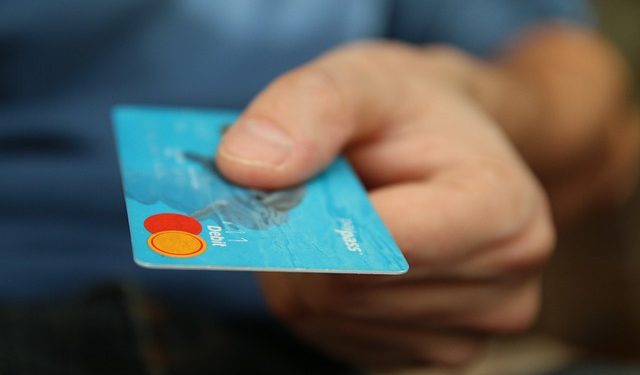A good credit score is an essential financial tool. It can open the door to favorable interest rates on loans, better insurance premiums, and even employment opportunities. Improving your credit score takes time and effort, but the benefits are well worth it. In this blog, we will explore practical steps you can take to increase your credit score.
Understanding Your Credit Score
Before you can improve your credit score, it’s important to understand what it is and how it’s calculated. Your credit score is a three-digit number that represents your creditworthiness. It’s calculated based on your credit report, which contains information about your credit history. The most commonly used credit scoring model is the FICO score, which ranges from 300 to 850.
Your credit score is determined by several factors: payment history, amounts owed, length of credit history, new credit, and types of credit used. Payment history makes up the largest portion, accounting for about 35% of your score. This means that making timely payments on your bills is crucial. The amounts owed, which account for 30%, consider how much of your available credit you are using. Keeping your credit utilization low is essential for a good score.
Paying Bills on Time
One of the most straightforward ways to improve your credit score is by paying your bills on time. Late payments can significantly impact your credit score, as payment history is the most significant factor in determining your score. Setting up automatic payments or reminders can help ensure that you never miss a due date.
If you have missed payments in the past, don’t despair. While late payments can stay on your credit report for up to seven years, their impact diminishes over time. Focus on building a positive payment history moving forward. Consistently paying your bills on time can gradually improve your score, demonstrating to lenders that you are a reliable borrower.
Reducing Credit Card Balances
High credit card balances can negatively affect your credit score, particularly your credit utilization ratio, which is the amount of credit you are using compared to your total credit limit. Aim to keep your credit utilization below 30%. If you have multiple credit cards, paying down the balances on all of them can improve your credit utilization ratio and, consequently, your credit score.
To reduce your credit card balances, create a budget and allocate extra funds towards paying off your debt. You might also consider consolidating your debt with a personal loan, which can help you pay off high-interest credit card debt faster. Be cautious with this approach, though, as taking on new debt can impact your credit score in the short term.
Avoiding New Credit Applications
Each time you apply for new credit, it results in a hard inquiry on your credit report, which can lower your credit score slightly. While one or two inquiries might not have a significant impact, multiple inquiries within a short period can be detrimental. Avoid applying for new credit unless it is necessary, and try to space out your credit applications.
If you do need to apply for credit, such as a mortgage or an auto loan, do so within a short period. Credit scoring models often treat multiple inquiries for the same type of credit as a single inquiry if they occur within a specific timeframe, usually 14 to 45 days. This can help minimize the impact on your credit score.
Keeping Old Accounts Open
The length of your credit history accounts for 15% of your credit score. Closing old credit accounts can shorten your credit history and negatively impact your score. Even if you no longer use an old credit card, it can be beneficial to keep the account open, as long as it doesn’t cost you in annual fees or other charges.
Keeping old accounts open also contributes to your credit utilization ratio. Having more available credit can lower your utilization ratio, assuming you are not carrying large balances. If you have old accounts that you no longer use, consider using them occasionally for small purchases and paying them off immediately to keep the accounts active.
Diversifying Your Credit Mix
Having a diverse credit mix, which includes different types of credit accounts, can positively impact your credit score. Credit scoring models favor borrowers who can manage various types of credit, such as credit cards, installment loans, and mortgages. This factor accounts for about 10% of your credit score.
If you only have one type of credit, consider diversifying your credit portfolio. However, do so cautiously and strategically. For instance, if you primarily have credit card debt, taking out a small personal loan and making timely payments can help diversify your credit mix. Always ensure that any new credit is manageable and fits within your financial plan.
Regularly Checking Your Credit Report
Regularly reviewing your credit report can help you identify errors or fraudulent activity that could be affecting your credit score. You are entitled to a free credit report from each of the three major credit bureaus (Equifax, Experian, and TransUnion) once a year through AnnualCreditReport.com. By checking your credit report, you can ensure that all the information is accurate and up-to-date.
If you find any errors, dispute them with the credit bureau and the creditor involved. Correcting inaccuracies on your credit report can quickly improve your credit score. Additionally, monitoring your credit report can help you catch identity theft early and take action to minimize damage.
Conclusion
Improving your credit score requires a combination of good financial habits and strategic actions. By understanding how your credit score is calculated, paying your bills on time, reducing credit card balances, avoiding unnecessary credit applications, keeping old accounts open, diversifying your credit mix, and regularly checking your credit report, you can steadily increase your credit score. Remember, improving your credit score is a marathon, not a sprint. With patience and diligence, you can achieve a higher credit score and enjoy the financial benefits that come with it.


